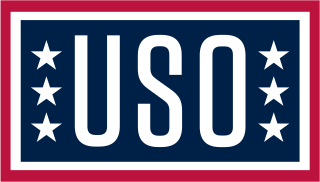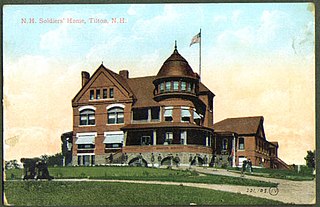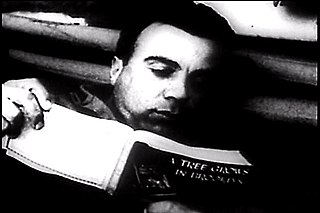Related Research Articles

The United Service Organizations Inc. (USO) is an American nonprofit-charitable corporation that provides live entertainment, such as comedians, actors and musicians, social facilities, and other programs to members of the United States Armed Forces and their families. Since 1941, it has worked in partnership with the Department of War, and later with the Department of Defense (DoD), relying heavily on private contributions and on funds, goods, and services from various corporate and individual donors. Although it is congressionally chartered, it is not a government agency.

United Way is an international network of over 1,800 local nonprofit fundraising affiliates. United Way was the largest nonprofit organization in the United States by donations from the public, prior to 2016.

Campaign finance, also known as election finance or political donations, refers to the funds raised to promote candidates, political parties, or policy initiatives and referenda. Political parties, charitable organizations, and political action committees are vehicles used for fundraising for political purposes. "Political finance" is also popular terminology, and is used internationally for its comprehensiveness. Political donations to funds received by political parties from private sources for general administrative purposes.
The Royal National Institute of Blind People (RNIB) is a UK charity offering information, support and advice to almost two million people in the UK with sight loss.

The 369th Infantry Regiment, originally formed as the 15th New York National Guard Regiment before being re-organized as the 369th upon federalization and commonly referred to as the Harlem Hellfighters, was an infantry regiment of the New York Army National Guard during World War I and World War II. The regiment consisted mainly of African Americans, though it also included men from Puerto Rico, Cuba, Guyana, Liberia, Portugal, Canada, the West Indies, as well as American white officers. With the 369th Infantry Regiment, it was known for being one of the first African-American regiments to serve with the American Expeditionary Forces during World War I.

The Bonus Army was a group of 43,000 demonstrators – 17,000 veterans of the United States in World War I, their families, and affiliated groups – who gathered in Washington, D.C., in mid-1932 to demand early cash redemption of their service bonus certificates. Organizers called the demonstrators the Bonus Expeditionary Force (B.E.F.), to echo the name of World War I's American Expeditionary Forces, while the media referred to them as the "Bonus Army" or "Bonus Marchers". The demonstrators were led by Walter W. Waters, a former sergeant.

An old soldiers' home is a military veterans' retirement home, nursing home, or hospital, or sometimes an institution for the care of the widows and orphans of a nation's soldiers, sailors, and marines, etc.
The Royal British Legion (RBL), formerly the British Legion, is a British charity providing financial, social and emotional support to members and veterans of the British Armed Forces, their families and dependants, and all others in need.

The 92nd Infantry Division was an African-American infantry division of the United States Army that served in both World War I and World War II. The military was then segregated. The division was organized in October 1917, after the U.S. entry into World War I, at Camp Funston, Kansas, with African-American soldiers from all states. In 1918, before leaving for France, the American buffalo was selected as the divisional insignia due to the "Buffalo Soldiers" nickname, given to African-American cavalrymen in the 19th century. The divisional nickname, "Buffalo Soldiers Division", was inherited from the 366th Infantry, one of the first units organized in the division.

Armed Services Editions (ASEs) were small paperback books of fiction and nonfiction that were distributed in the American military during World War II. From 1943 to 1947, some 122 million copies of more than 1,300 ASE titles were distributed to servicemembers, with whom they were enormously popular. The ASEs were edited and printed by the Council on Books in Wartime (CBW), an American non-profit organization, in order to provide entertainment to soldiers serving overseas, while also educating them about political, historical, and military issues. The slogan of the CBW was: "Books are weapons in the war of ideas."

Soldier settlement was the settlement of land throughout parts of Australia by returning discharged soldiers under soldier settlement schemes administered by state governments after World War I and World War II. The post-World War II settlements were co-ordinated by the Commonwealth Soldier Settlement Commission.
The following outline is provided as an overview of and topical guide to World War I:

William Howard Brett was head librarian for the Cleveland Public Library from 1884 to 1918. American Libraries described him as one of the "100 most important leaders (librarians) had in the 20th century"

The Library War Service was established by the American Library Association in 1917 to provide library services to American soldiers training in camps and serving overseas in World War I. Between 1917 and 1920, the ALA raised $5 million from public donations, erected 36 camp libraries, distributed 7 to 10 million books and magazines, and provided library collections to more than 500 locations, including military hospitals. The Library War Service also provided books in Braille to soldiers that were blinded in battle. Library War Service librarians wore uniforms, similar to those worn by other volunteer groups like the American Red Cross, and the Library War Service provides some of the earliest examples of women participating in uniformed war service overseas. Millions of public libraries in the United States also participated in Library War Service activities, serving as collection points for books as well as places to organize and promote the War Service campaign. The efforts of the Library War Service eventually led to the creation of many modern library services, including the creation of library departments in the Army, Navy, Veterans' Association and Merchant Marine, as well as the establishment of the American Library in Paris, which remains the largest English-language lending library on the European continent today.

Ithaca War Memorial and Park is a heritage-listed memorial and park at Enoggera Terrace, Paddington, Queensland, Australia. The memorial was designed and built by Arthur Henry Thurlow between 1921 and 1925. The park was built and designed by Alexander Jolly. It is also known as Alexander Jolly Park. It was added to the Queensland Heritage Register on 21 October 1992.

Joseph Fulton "Bald Knob" Ware was professor of Military Science and Tactics at Virginia Polytechnic Institute from 1911 to 1914. During the years of World War I, Ware served in Europe, Alaska, and the Philippines. He served in three divisions, two corps, and two armies. He participated in several influential battles during the war, including the Argonne Offensive and the Battle of St. Mihiel. Ware is buried in Arlington National Cemetery. His son was Joseph F. Ware Jr.

Queensland Soldiers' Comforts Fund, a working subdivision of the Australian Comforts Fund, was established during World War I. The purpose of the Fund was to provide comforts to soldiers on active service. This was achieved via appeals for donations, public subscriptions, and organising fundraising activities. Numerous branches of the Queensland Soldiers' Comforts Fund were spread throughout Queensland, Australia during this period.

American Women's War Relief Fund was an expatriate organization in the United Kingdom started by American women to fund and aid World War I support efforts. The group was made up of wealthy socialites, politicians' wives and humanitarians. Many famous and well-connected women were involved, including Lou Hoover, Consuelo Vanderbilt and Lady Randolph Churchill. Leila Paget served as president and Ava Lowle Willing was the fund's vice-president. The group, started almost immediately after the declaration of war, funded a fleet of ambulances, two hospitals, one field hospital and several employment opportunities for unemployed women in Britain.
The Cheer-Up Society was a South Australian patriotic organisation founded during The Great War, whose aims were provision of creature comforts for soldiers in South Australia. Much of their activity was centred on the Cheer-up Hut, which they built behind the Adelaide railway station, and almost entirely staffed and organised by volunteers.
The charitable activities of the Knights of Columbus include the money and time donated by the Order of the Knights of Columbus, state and local councils, and individual members, to charitable causes.
References
- 1 2 3 "The Library War Service". American Libraries Magazine. February 18, 2016.
- ↑ "Libraries for our soldiers and sailors". Library War Council. November 18, 1917 – via Hathi Trust.
- 1 2 3 4 5 "War Library Bulletin". American Library Association. November 18, 1917 – via Google Books.
- ↑ Council, Massachusetts Library War (November 18, 1917). "Banish lonely hours in camp! Help provide libraries filled with books for soldiers A million dollars for a million books for a million men--Leave your money at the public library or at any bank. The Library War Council - appointed by the War Department through the American Library Association - is raising one million dollars during Camp Library Week, Sept. 24-30, to build and maintain a library at every training camp and cantonment for soldiers, sailors and airmen, at home and abroad. Massachusetts Library War Council" – via Wikimedia Commons.
- ↑ "War Library Bulletin". American Library Association. November 18, 1917 – via Google Books.
- ↑ "American Library Association's Honorary Member Listing | Awards & Grants". www.ala.org.